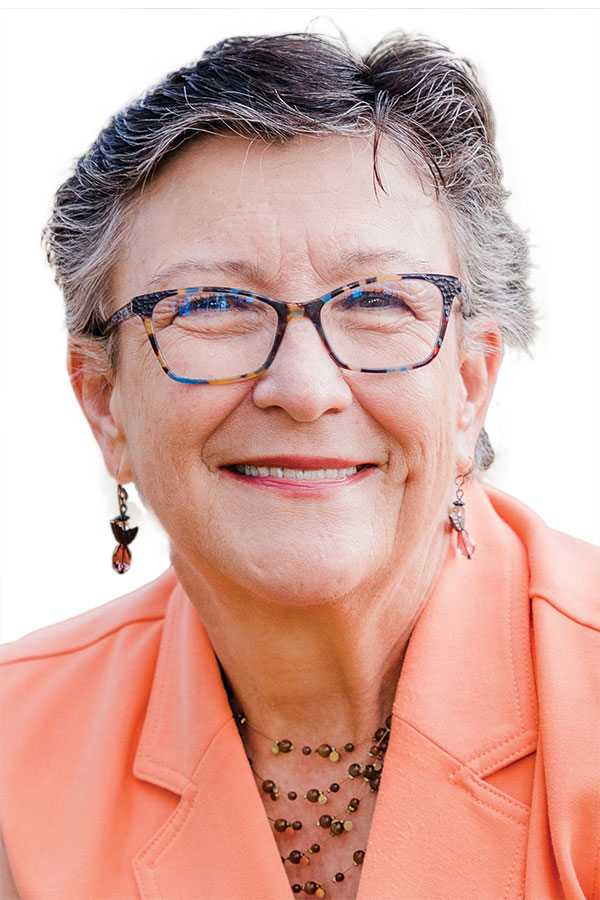NEA Women in Business: Melissa Parker Taverner
by September 4, 2024 8:31 am 178 views

Residence: Batesville
Education: Bachelor’s degree in biology, Randolph-Macon Woman’s College; master’s degree in science virology, University of Reading, England; doctorate in environmental science, University of Virginia
What was your dream job and why? I always wanted to work in science, specifically in biology. Through out my education I always gravitated to the natural sciences, and eventually gained experience in research, working with one of my undergraduate professors. That experience, along with discovering how much fun microbiology could be led me to graduate school where I began to understand the interconnectedness of living systems. These ideas still excite me and when I began teaching I realized that I could share the love of learning and understanding with my students. Being able to share something that I love — that’s my dream job.
What’s the next big personal or career challenge you plan to take on? Continuing to explore how Lyon College can strengthen its liberal arts foundation while expanding our curriculum, including through graduate and professional degree programs, to meet the needs of our students and our communities.
We are making significant progress toward opening both the new Lyon College School of Dental Medicine in Little Rock and the Lyon College School of Veterinary Medicine in Cabot. Both projects are huge lifts and we would not have achieved our key benchmarks thus far without supporters and partners who share our vision. We continue to work with the professional accrediting agencies and still anticipate seating our first classes in the dental school in 2025, and welcoming our first vet students later in the cycle.
What character traits do you feel have benefited you in your success? I tend to be very focused on problems or objectives. To make sure that I can come to some resolution, I will spend an equal or greater proportion of time in planning as I do in execution. I like to collaborate with people with different skill sets — as a project is advanced, I have the opportunity to learn from them and understand differently. I also have a bit of a stubborn streak — so I’m told — so I will keep chipping away at a problem until a viable solution can be identified.
What has been the most fulfilling moment of your career so far? Every graduation day.
What advice would you give young women who are at the beginning of their careers? Avoid pigeonholes. Be open to new and often unexpected opportunities, and be willing to learn and work outside of your comfort zone. Identify mentors who can help you see the different possibilities, and then be willing to provide that same kind of support for others entering your organization. And be brave.
If you have a bucket list, what are the top three things on it? In no particular order I want to visit Alice Springs in Australia, summit at least three fourteeners [mountains in excess of 14,000 feet] in Colorado, and visit the Arctic circle in Scandinavia in the winter.
Do you have a significant other and/or children? If so what do you guys like to do for fun? My husband David and I have been married for 41 years this year. We have two daughters: Rachel (32) lives and works in Lansing, Mich. Jordan (27) lives and works in Estes Park, Colo. All of us enjoy being outside and hiking, camping, kayaking, or biking.
What’s your favorite app at the moment? Aside from my grocery shopping app, I tend to avoid them.
Who have been mentors who’ve influenced your professional career? The persons with the greatest professional impact for me have been experienced colleagues who chose to devote their lives to undergraduate education. They helped me learn to be an effective teacher and mentor to students while navigating the angst of the tenure process. They helped me to understand and focus on the important role that faculty members play in their students’ lives. These people helped me to achieve a kind of balance as I sought to advance in my multifaceted academic career.
Can you share how COVID impacted your business or organization during the pandemic? Because we are a small residential campus, we were concerned about maintaining the health and safety of our community members, including faculty, staff, and students. We shifted to fully remote instruction in March of 2020 and extended that modality to that fall as well. We welcomed students, faculty, and staff back to campus in the spring of 2021, implementing a number of CDC and ADH safety precautions on campus. Although by the fall of 2021, we had begun gradually removing precautions, the almost two years of uncertainty and different ways of operating definitely reduced our on-campus population. We’re so pleased that our enrollment and retention are now exceeding our pre-pandemic levels.
One positive and completely unanticipated effect of the pandemic is that our faculty, through training and support, began to develop effective online coursework. Having access to online classes, both during the regular and summer terms, has provided flexibility for students who are fully remote and students who are absent because of illness, family emergencies, or athletic travel.
What’s the last good book you read? “Four Lost Cities: A Secret History of the Urban Age,” by Annalee Newitz.
How do spend your time away from work? What are your hobbies? My husband and I both enjoy hiking and camping. We like to exploring hew places and spend time outside, especially in the cooler weather. We also enjoy gardening, although our focus has shifted to more ornamental gardening from almost exclusively vegetables and herbs.
